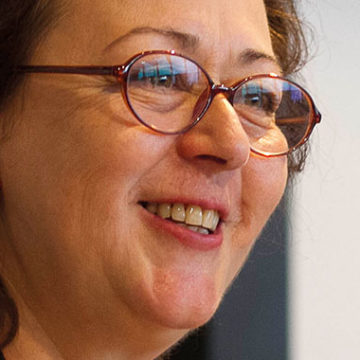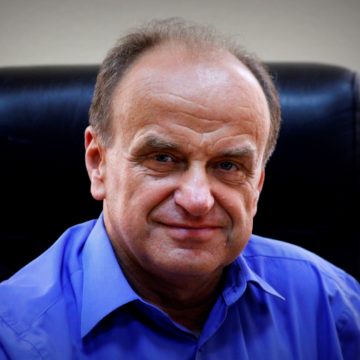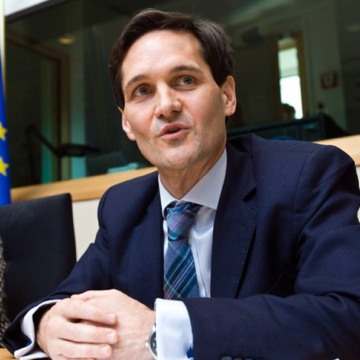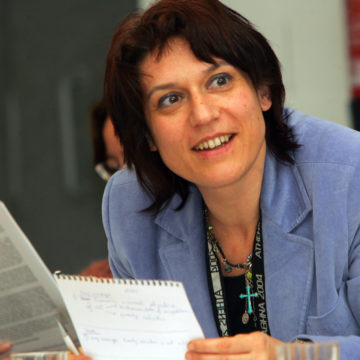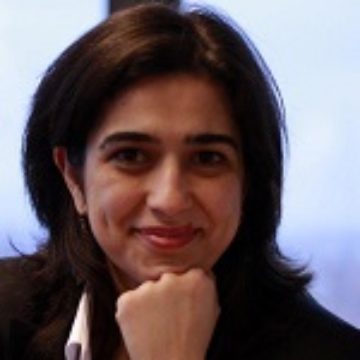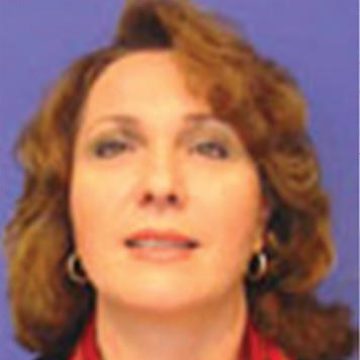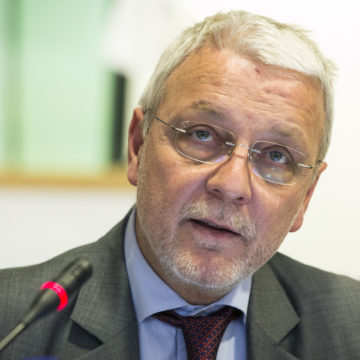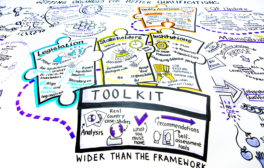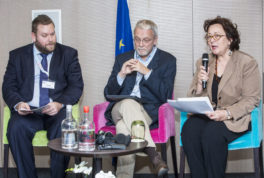Agenda
-
Day one | Session one - Opening Plenary
-
Day one | Session two – 4 parallel workshops, two rounds
-
Day two | Session one – Opening Plenary
Speaker Bios
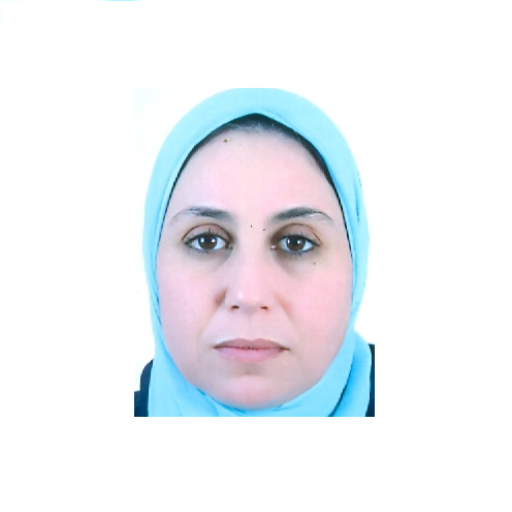
Amina El Alam is a state engineer, graduated at National School of Mineral Industry “ENIM” in Morocco.
Currently she holds the position of Head of Programmes and Educational Coordination Division in the Ministry of National Education and Vocational Training in Morocco. Moreover she represents the Department of Vocational Training as focal point in the construction and implementation of the National Qualifications Framework in Education, Training and Employment in Morocco.
Amina El Alam has an extensive experience in the development and implementation of training development process according to the Competence Based Approach (APC), in all its components including planning of training offer, design and implementation of training programs.
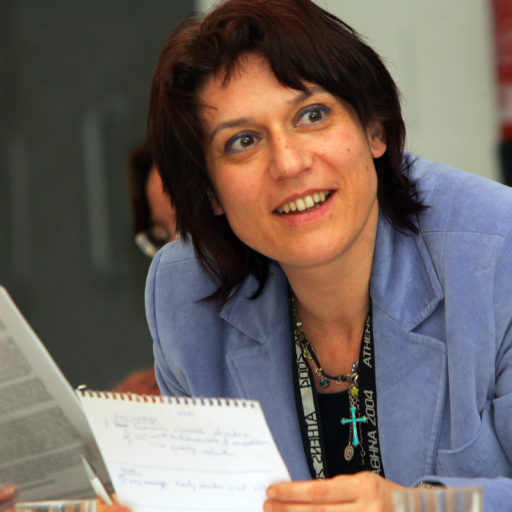
Since January 2015 Anastasia Fetsi is Head of the Operations Department in the European Training Foundation (ETF). She is an economist and has a long experience on skills development policies in transition economies and in particular in the countries of Central and Eastern Europe, Western Balkans, Central Asia and North Africa. As staff member of ETF she analysed the relevance of vocational education and training systems to labour market developments; designed EU funded programmes in vocational education and training and employment; implementation of innovation and learning projects (e.g. on transition from school to work, flexicurity and the role of lifelong learning); and policy advice to Ministries of Education and Labour in the ETF partner countries. issues of education and training and its links to the labour market.
Tap again to see full bio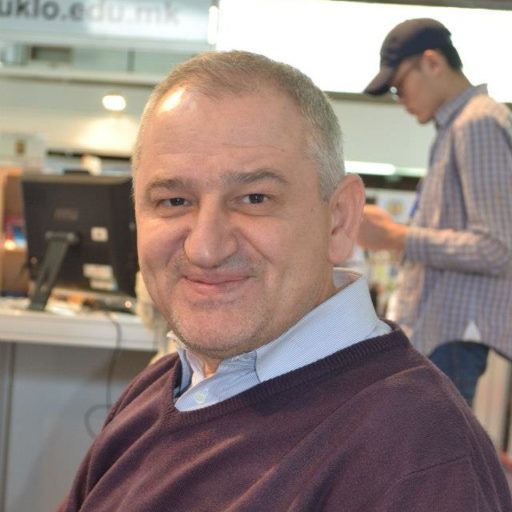
Borcho Aleksov is president of the National Board for Macedonian Qualification Framework and member of the Advisory Group for European Qualification Framework. He has been included in National Qualification Framework implementation and development since 2009 and, in preparation of the Macedonian Referencing report and development of other qualification framework in the region. His main interests are in the field in higher education qualification and learning outcomes development and their relations with job descriptions.
Tap again to see full bio
Christian Sperle is Head of Unit at the German Confederation of Skilled Crafts (Zentralverband des Deutschen Handwerks, ZDH) which is the national representative body of the skilled crafts sector vis-à-vis the German Government. At the department of VET he is responsible for transnational mobility in VET and European VET programs, initiatives and instruments, such as the European Qualifications Framework (EQF). He is member of several national and European VET-committees.
Tap again to see full bio
Working in the ETF since 2003, Eduarda Castel-Branco currently coordinates the activities of the network on skills matching of the Eastern Partnership.
She has been active in country-specific projects and in thematic operations (employment and qualifications), managed ETF activities in the Eastern and Southern Neighbourhood (Armenia, Azerbaijan, Georgia, Morocco), and in candidate countries (former Yugoslav Republic of Macedonia).
In 2015-2016 Eduarda leads ETF support to the Moroccan NQF; led ETF support to successful EQF Referencing of the former Yugoslav Republic of Macedonia; provides expert support to preparation of EQF referencing of Serbia and Albania; coordinates ETF support to build arrangements for validation of non-formal and informal learning in the former Yugoslav Republic of Macedonia, and the EU VNFIL Inventory in Serbia.
Since 2013 is ETF representative in the Advisory Group of the European Qualifications Framework (EQF).

Dr Grant Klinkum is Deputy Chief Executive Quality Assurance of the New Zealand Qualifications Authority (NZQA). NZQA sets the rules for quality assurance in the tertiary sector in New Zealand. NZQA administers the New Zealand Qualifications framework and the Education (Pastoral Care of International Students) Code of Practice 2016.
Prior to joining NZQA in early 2014, Grant spent seven years at the Tertiary Education Commission (TEC) in senior management roles. Prior to the TEC, Grant worked as Deputy Chief Executive at an Institute of Technology and Polytechnic and has worked as a Dean of Faculty at two tertiary education organisations. Grant has a PhD in Political Science from Victoria University of Wellington, a Master’s in Education Administration from Massey University and a Master of Arts degree from the University of Canterbury.
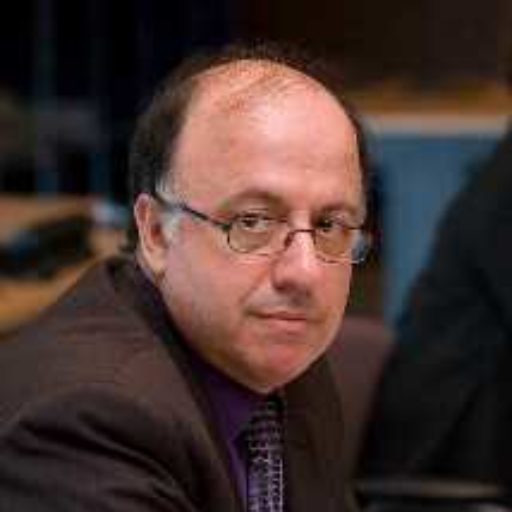
Loukas Zahilas was born in Canada in 1960 and is Head of the Department for VET Systems and Institutions (DSI) at Cedefop, the European Centre for the Development of Vocational Training. He studied Chemistry and Information Technologies and he has a PhD in educational policies (qualifications frameworks).
After a six-year stint in the pharmaceutical industry, he has concentrated his efforts entirely on education and training. His more than 22 years of professional experience in vocational education and training were mainly acquired at the Greek Ministry of Education, the University of Athens and Cedefop.
Loukas Zahilas joined Cedefop as a senior expert in 2006 working on qualifications, the common EU tools and principles and analysis of labour market issues. Currently he is a member of Cedefop’s management team as Head of DSI.
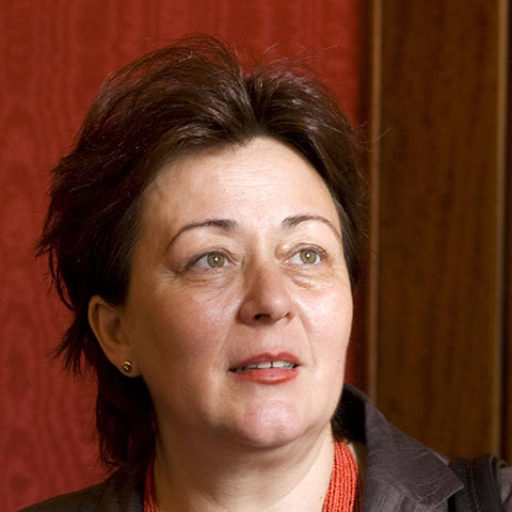
Madlen Serban (RO) is Director of the European Training Foundation since 1 July 2009.
Before coming to the ETF, she was Director of the National Centre for Technical and Vocational Education and Training in Romania. Dr. Serban, has spent most her career working in the field of vocational education and training. She has a broad international experience from her work as an expert and evaluator for international organisations including UNESCO, USAID, the European Commission, OECD, the World Bank and the ETF.
Madlen Serban has a PhD in social partnership in education and training from the University of Bucharest. She represented the Romanian government on the ETF’s Governing Board from 1998-2007.
Tap again to see full bio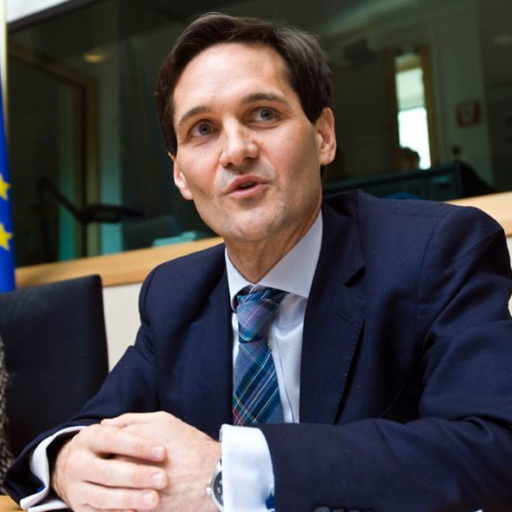
Michael Graham is Strategic Project Leader, qualifications and qualifications systems, ETF. He joined the Foundation in 2010 , following a career in the Scottish Education Department. He was also an expert seconded to the European Commission in Brussels, where he was in the team which developed the EQF. He has worked with a broad range […]
Tap again to see full bio
Osman Seçkin Akbıyık studied business administration at Marmara University in İstanbul and graduated in 2007. In 2010 he was recruited by VQA as an assistant expert and tasked with the development of Turkish Qualifications Framework. In January 2016, he was assigned as the head, following the establishment of Turkish Qualifications Framework department. His main study area has always been qualifications framework but additionally he’s dealing with validation of non-formal and informal learning, credit systems, mutual recognition of qualifications and lifelong learning. He’s been representing Turkish National Coordination Point at EQF Advisory Group since July, 2016 and a member of TQF Council.
He’s currently an undergraduate in sociology at Anadolu University and a postgraduate in sociology at Ankara University.
Tap again to see full bio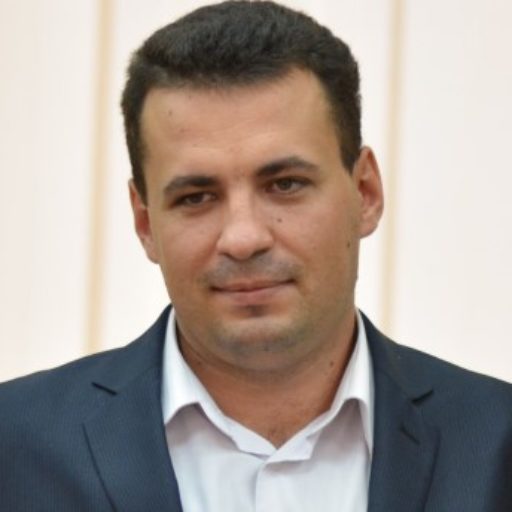
Since June 2014 Dr. Silviu Gîncu is the Head of Department for technical professionals education of the Ministry of Education, Republic of Moldova. Before this he was Head of Department of Informatics, Financial-Banking College of Chisinau. In the period of 2006 – 2014 he was the Teacher Computer Science. He holds a Scientific Degree in Pedagogy and Master’s Degree in Informatics from the Tiraspol State University.
Tap again to see full bio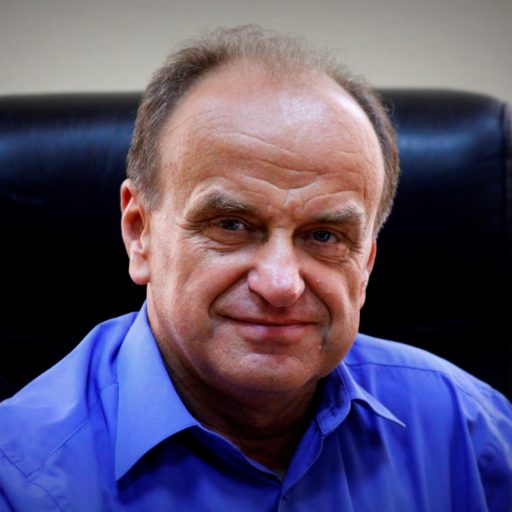
First Deputy Minister of Education and Science of Ukraine (2016). Vice-Director of the Institute for Higher Education of the National Academy of Educational Science (2015–2016).
In 1998–2015 – associated professor of National Academy of Management, Taras Shevchenko National University of Kyiv, KROK University.
During 2001–2016 collaborated with projects of technical assistance in election law and processes, external assessment in education. Participated in development of distance learning system for election commissioners, drafting laws and regulations for election and education. In 2012-2015 – coordinator of working group drafting basic law “On Education” under Verkhovna Rada of Ukraine (Parliament).
Member of Parliament in 1994–1998.
In 1980–1994 – assistant professor and associated professor in Rivne Teachers Training Institute. PhD in Mathematics (1983). Master Degree in Mathematics (1978).

Aileen joined the SCQF Partnership as its first Chief Executive in July 2007.
The Partnership is the body responsible for maintaining the National Framework for Scotland – the SCQF. In addition it has responsibility as the National Co-ordination Point for the European Qualifications Framework and for ECVET.
Prior to joining the SCQF Partnership Aileen was Head of Policy Development, Scotland with the Sector Skills Development Agency for 3 years.
Before joining SSDA in 2004 Aileen had worked with the Scottish Qualifications Authority and its predecessor SCOTVEC since 1989.
Aileen is currently a Board member of the Scottish College for Educational Leadership (SCEL) and has just completed a six year ministerial appointment as a member of the Hong Kong Council for the Accreditation of Academic and Vocational Qualifications.

Ana Carla Pereira is Head of Unit for “Skills and qualifications” in Directorate General Employment, Social Affairs and Inclusion at the European Commission. She is responsible for developing and implementing the New Skills Agenda for Europe, including the implementation of EU tools for recognition and transparency of qualifications such as the European Qualifications Framework, Europass, the EU Skills Panorama or the Skills Profile Tool for Third-country Nationals. Prior to this, she has worked more than ten years in the implementation of European Employment Strategy and several years in the private sector as a business consultant specialised in human performance. She graduated in Economics at University of Coimbra (PT) and holds a MA in European Human Resources Studies from the College of Europe (BE). She is Portuguese mother tongue and fluent in English, French and Italian.
Tap again to see full bio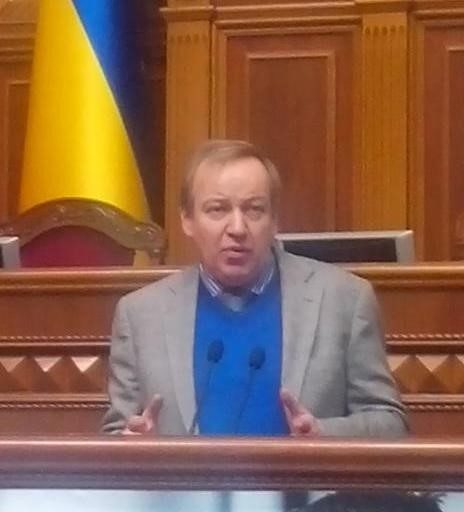
Arjen Deij is working for the ETF since 1995, as a senior expert on qualifications systems. He has worked in Higher Education and in Vocational Education and Training. He led the ETF work on occupational standards in the late nineties. He has been directly involved in the development of the qualifications framework in Romania, England, Wales and Northern Ireland (on secondment from ETF at QCA) and has been working in supporting the reform of qualifications systems in a number of partner countries Azerbaijan, Bosnia and Herzegovina, Moldova, Kazakhstan, Turkey and Ukraine.
He has been following qualifications framework developments internationally for many years and has published regularly about them. You can follow his work through the ETF’s Qualifications Platform www.qualificationsplatform.net, a community of more than 750 experts involved in the reform of qualifications systems.
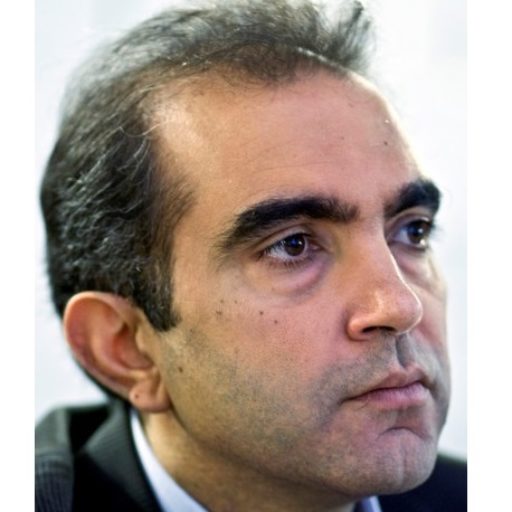
Borhene Chakroun is an engineer and has a PhD in Education Sciences from Bourgogne University in France. His academic work focuses on the certification and validation of prior learning. Borhene worked, during the 1990s, as trainer, chief trainer, VET project manager.
He has also worked as short-term consultant for the EU, World Bank and other international organisations before coming to the European Training Foundation (ETF) in 2001.
At the ETF, Borhene worked as Senior Human Capital Development specialist and Team leader of the EU funded regional project Education and training for Employment (MEDA-ETE). He has also coordinated the ETF’s community of practice on National Qualifications Frameworks and Recognition of Qualifications.
He is now Head of the TVET section at UNESCO and is leading the implementation of the UNESCO TVET strategy
Tap again to see full bio
Helene joined the European Commission in 1996 and since 2006 worked in the Directorate-General for Education and Culture. Currently as Policy Officer in the unit responsible for international cooperation, Helene monitors the developments in the Western Balkans in the areas of education, training, youth and culture in view of preparing these countries for the obligations of EU membership.
Since 2011, Helene is the coordinator of the Western Balkans Platform on Education and Training, an EU led initiative for regional policy dialogue at Ministerial level. She is responsible for initiating various activities aiming at exchange of good practice and cooperation within the region, and for contributing to the EU’s enlargement strategy in the field of education, youth and culture.
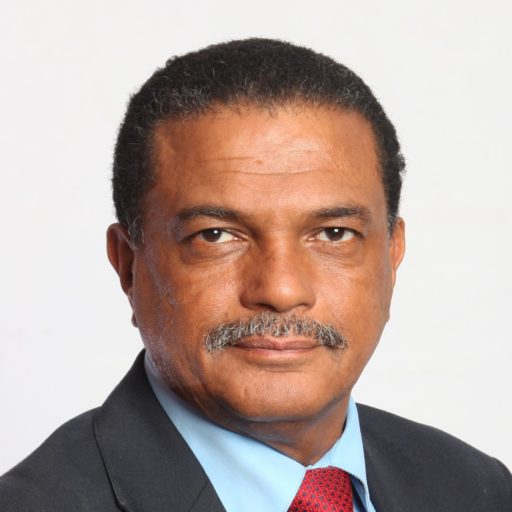
oe Samuels has been appointed the Chief Executive Officer (CEO) for South African Qualifications Authority (SAQA) as from 1 March 2012.
He holds a BSc (Hons) and an MPhil from the University of the Western Cape, South Africa. He is a specialist in Educational Policy and Education Change, Qualifications Frameworks, Standards Setting, Quality Assurance and Adult and Community Education.
Recently he served as the chairperson of the UNESCO drafting team of the Addis Convention, a document on the recognition of foreign qualifications that allows for the movement of learners, academics and workers across borders, that was adopted by 54 African States in December 2014. He has served as an expert on the Unesco panel of experts for development of the Global Convention of the Recognition of Qualifications for Higher Education and for Level Descriptors.
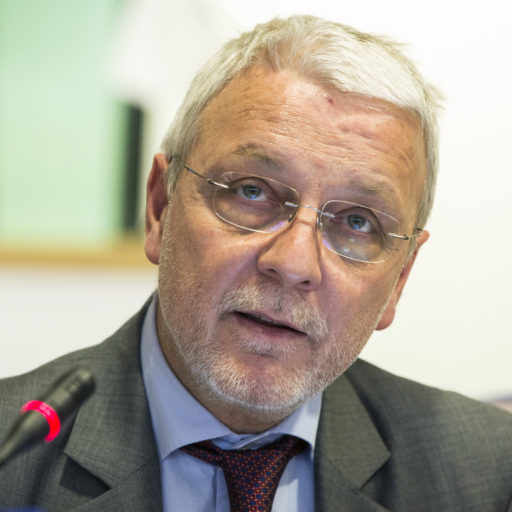
Jordi Curell is the director of labour mobility at the Directorate-General for Employment, Social Affairs and Inclusion of the European Commission. He is currently working on the New Skills Agenda for Europe initiative, which is part of the European Commission’s boost for jobs, growth and investment. Previously he was a director at the Commission’s DG Education and Culture responsible for lifelong learning: horizontal Lisbon policy issues and international affairs. This included supporting, developing and implementing lifelong learning policy, with particular regard to the key role of education and training in the Lisbon strategy.
Tap again to see full bio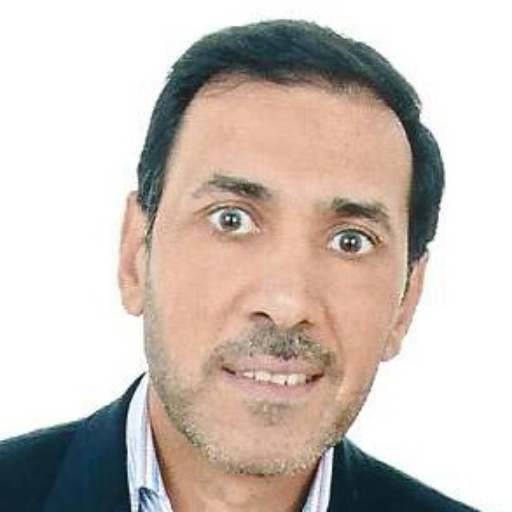
Mr. Malik Althuwaynee, currently serves as the CEO of Alliance Management Consultancy, earned his Bachelor and Master’s Degrees in translation and cultural studies from Mosul University (Iraq) and American University of Sharjah. His career started in 1991 when he established AlUmara House for Translation and Publication in Baghdad.
In the field of qualifications systems, since joining the team of Abu Dhabi-based Qualifications Framework Project in 2008, he participated in the development of a fit-for-purpose UAE Qualifications System that can ably assist in fulfilling the social and economic vision of the country.

Michel Servoz is Director-General of DG Employment, Social Affairs and Inclusion, European Commission. He was previously Deputy Secretary General of the Commission, involved in the coordination of the EU semester, including the Annual Growth Survey and of the proposals for the next multi-annual financial framework. From 2005–2010 he was the director of policy coordination for the Secretariat General where he worked on the elaboration of the Europe 2020 strategy for growth and jobs and on the preparation of the European Economic recovery plan.
Tap again to see full bio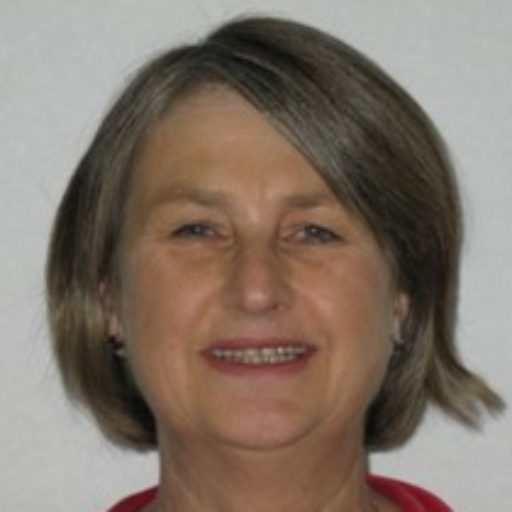
Mirjam de Jong, European Training Foundation, has been involved in Vocational Education and Training throughout her working career. Starting as practitioner. She led bilateral projects in Eastern Europe and Asia, providing technical assistance on development and implementation of vocational qualifications and curricula, assessment and teacher training. All these projects focused on cooperation between vocational education and industry and on involvement of social partners, both at policy and at operational level. Since 2013, Mirjam works as specialist in qualifications system development. She works with partner countries in South Eastern Europe and with Turkey on implementation of national qualification frameworks and quality improvement of qualifications.
Tap again to see full bio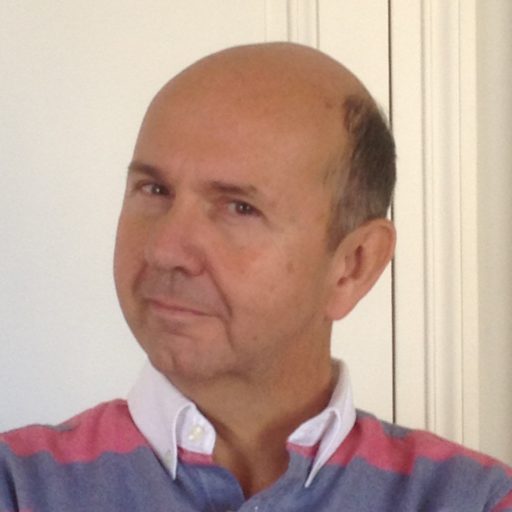
Didier Gelibert joined in 2015 the European Training Foundation as a specialist of Private Sector engagement in VET. Previously he worked for 19 years for the Automobile Services Sector in France.
He managed during 4 years the ECVET Secretariat (European Credit system for Vocational Education and Training) for the European Commission.
Didier was the coordinator of the French Automobile Team for Worldskills for 15 years.
He holds a Master in Economics and Administration of Paris University and a Certificate of Trainer and Business adviser for Craft companies.
Didier also acquired its experience in Peru and Canada (Quebec).
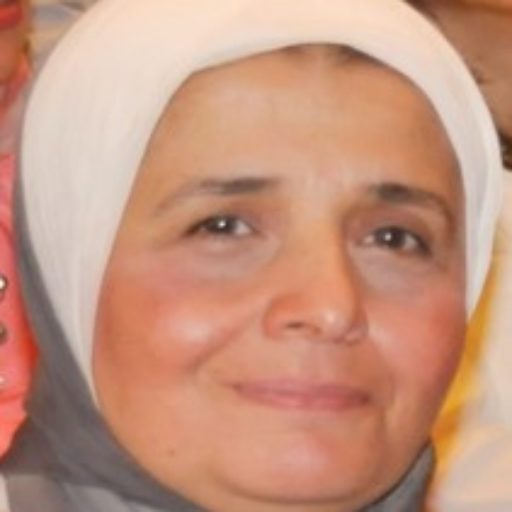
After receiving her B.Sc. in Architectural Engineering, from Ain Shams University (ASU), Dr. Youhansen Eid received her M. Arch. (1986), and her Ph.D. in Urban Planning from the University of Southern California (1992). Since then, she has worked at the Faculty of Engineering ASU, where she has taught several courses in planning theory and practice. She has also been appointed as a Visiting Professor at the American University in Cairo (AUC), the British University in Egypt (BUE) and Misr International University (MIU). In addition she has participated in curriculum development, quality assurance, and educational reform. In 2009 she became a trainer for strategic planning in higher educational institutes. She held the positions of head of the department of Urban Planning (2007-2009), Vice-Dean at the Faculty of Engineering (2009-2011) and head of the board of admission and examination for the joint M.Sc. program Integrated Urbanism and Sustainable Design (ASU and Stuttgart University). Currently she is the head of the National Authority for Quality Assurance and Accreditation of Education in Egypt.
Tap again to see full bio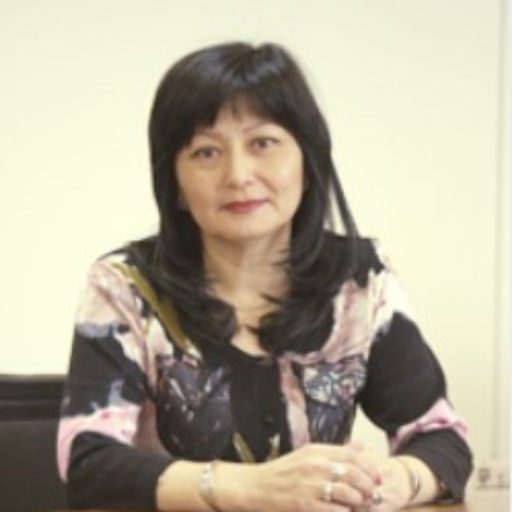
Since 2013 Lyazat Shonayeva is the Director of the Human Capital Development Department in the National Employers Chamber of Kazakhstan.
Over the past 10 years she has worked in the public sector, namely in the Department of Education of Astana and in the VET provision field, as a teacher and training/retraining expert in adult learning education centers.
She wrote 8 scientific articles in the field of education and VET.
Tap again to see full bio
Mr Jakubik works at the Ministry of Education, Science, Research and Sport of the Slovak republic since 2010. From 2010 to 2012 he worked in field of Lifelong Learning and worked on amended legislation for LLL at Department for Lifelong Learning. In 2013 he transferred to Department of Regional Schooling and Unit for Vocational Education and Training.
In field of European policy for VET, Mr Jakubik represents Slovakia as a member of DG VET, ACVT and technical working group for VET. He is also national representative by Cedefop and a member of Governing Board in ETF.
Currently he is responsible for all activities during the Slovak presidency in Council of EU regarding education.
Tap again to see full bio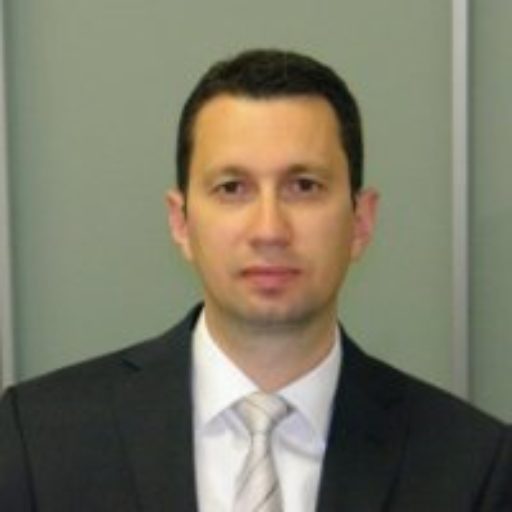
Fatih Tokatli graduated from Bilkent University School of Applied Languages in 1999. He joined Turkish Confederation of Employer Associations (TİSK) in 2005 and was responsible for TİSK’s international relations, focusing on EU affairs and was a member of BUSINESSEUROPE’s Social Affairs and Industrial Affairs Committees on behalf of TİSK. In 2010, Mr. Tokatli became Head of Industry, Services and Agriculture Department at TUSİAD, Turkish Industry and Business Association. In that role he was responsible for development of TUSİAD’s positions on industrial affairs, environmental issues and sectoral issues while coordinating sectoral working groups from defence industry and transportation to tourism and agriculture. In 2012, he joined Turkish Employers’ Association of Metal Industries (MESS), Turkey’s first and largest employers’ association.
Mr. Tokatli has an MA from Bilkent University on history and international relations and is a PhD candidate at the same university focusing on strategic studies.
He is currently Director of External Affairs, Training and Projects at MESS.
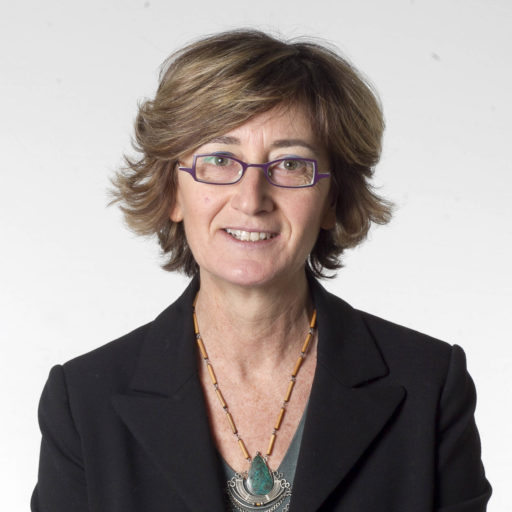
Siria Taurelli is the leader of the VET Governance strategic project at the European Training Foundation.
Moreover, she has been working on lifelong learning through initial and continuing VET, skills for enterprise development, equity and human capital development, leading teams and report drafting. She wrote the regional overview of the Torino Process reports of Eastern Europe in 2014.
Siria is experienced in project evaluation and impact assessment. During her secondment at the World Bank in 2007, she carried out a policy review of the VET sector in Morocco, and worked on skills and skill gaps in the Eastern Europe and Central Asia region. Siria started working on human capital development in context of the EU external policy at the European Commission, which she joined in 1991. Prior to that she developed her expertise in development cooperation while working for a research centre and an NGO.
Tap again to see full bio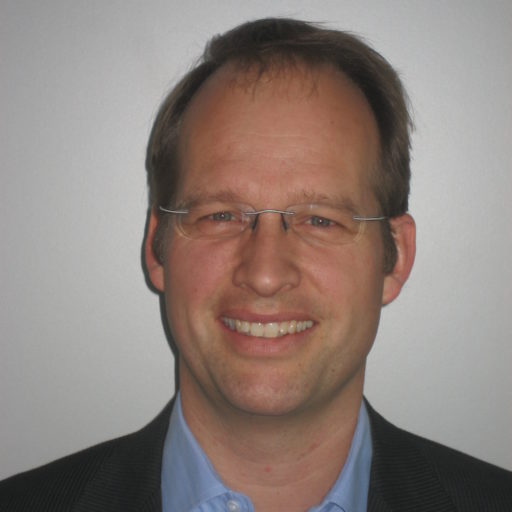
(Mr) Koen Nomden is currently Team Leader for “Transparency and Recognition of Skills and Qualifications”, within the Unit on Skills and Qualifications of the European Commission (DG Employment, Social Affairs and Inclusion). Before that he was a policy officer in charge of the validation of non-formal and informal learning and career guidance within the same unit. Other positions he held within the European Commission were that of Erasmus Mundus Programme Manager and of policy officer in charge of setting up a European Executive Agency in charge of implementing programmes in education, training, culture and media. Before joining the Commission in 2003 Koen worked at the University of Antwerp (researcher) and at the European Institute of Public Administration in Maastricht (the Netherlands). Koen studied public policy and public administration at the University of Twente (NL) and holds a Master in European Studies from the College of Europe.
Tap again to see full bio

